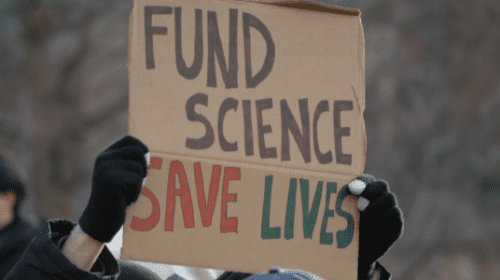What is MAT?
Medication-assisted treatment (MAT) is a treatment tool that combines FDA-approved medications with behavioral therapy to treat your substance-use disorder (SUD). MAT is commonly used to treat people with opioid-use disorders (OUD) but can also treat alcohol-use disorders (AUD).
MAT is an excellent option for those who have failed with abstinence, struggle with cravings, or are at high risk for overdose.
Behavioral therapy is a large part of the MAT process. Identifying the link between your thoughts and actions is imperative in understanding your behavior. You learn about your thoughts, cravings, physical symptoms, and relapse-prevention skills during therapy.
MAT benefits
MAT is a proven method to treat SUD. It’s an excellent way for those with a dual diagnosis (SUD + mental illness) to address both conditions together.
Here are some of the benefits:
- Treatment specific to individual’s needs
- Assists with withdrawal symptoms
- It helps taper off substances
- Prepare to enter a rehabilitation facility
- Lessen cravings long-term
What to expect during MAT
If you think MAT is for you, the first step is to educate yourself and ask questions. At Recovery Unplugged, the entire MAT process is a collaboration with your treatment team. We’re here to guide you through this challenging time.
Before determining if MAT is the best option for you, your team must consider the following:
- Your history
- Your presenting condition
- Your emotions and physical well being
- The financial aspect
- Aftercare planning
At Recovery Unplugged, we’ve found that most insurance plans will cover some or part of the MAT process. Be sure to check with your insurance provider if you have questions. Your treatment team can also assist you with this.
Aftercare is a large part of MAT. This includes medication management and securing the proper support for a successful recovery. For some, MAT is used both during treatment and as they enter a lower level of care or sober living environment.
You have options with MAT
There are various forms of MAT. The three FDA-approved medications to treat opioid use disorder (OUD) are buprenorphine, naltrexone, and methadone.
At Recovery Unplugged, we offer Suboxone®, Vivitrol®, and Sublocade®. Each of these medications provides a separate process and unique outcome.
Sublocade: a leader for MAT at Recovery Unplugged
A monthly injection of Sublocade® is our preferred MAT method at Recovery Unplugged. Extended-release medications like Sublocade® can lower the chances of relapse over time. In addition, you won’t experience intense high or low emotion levels.
After receiving your injection, the medication levels are consistent throughout the month, allowing you to focus on other parts of your treatment plan. You’ll participate in therapy, new wellness routines, and aftercare planning.
We recently talked with Ian Jackson, Program Director at Recovery Unplugged. He explained more about the process of using Sublocade® for MAT. “It takes away the stress of taking medication daily and receiving a monthly shot instead. It will produce the same effect without the hassle of a daily dose,” said Jackson. “A monthly shot can also serve as a commitment to recovery and medication,” he explains.
MAT is an important treatment option for you to consider. Talk with your doctor or treatment team to decide what’s best for you.
The future of addiction treatment
It’s an exciting time for addiction treatment. New medications and options are more widely available, and access to recovery programs is increasing. In addition, people are more open about mental health and substance use today than ever before.
Public Education
The United States has come a long way from the “Just Say No” campaign of the 1980s. Today, providing young people with honest drug education is essential, but there is still a lot of work to do. American Addiction Centers surveyed 500 young adults (18-24 years old) and found that 41% say they did not receive education about the science of addiction.
The responsibility lands on both educators and parents. Having open and honest conversations about the dangers of drug use while allowing kids to ask questions will be highly beneficial for the future.
The media
Every week, there seems to be a news article highlighting a celebrity’s triumph over addiction. We love a good redemption story, don’t we?
Social media plays a significant role in this. We get an inside look at the lives of those battling with substance use and are part of the sobriety celebration for others.
Instagram is full of sober communities sharing their experiences to lessen the stigma around addiction. It’s beneficial to see someone who looks like us, which helps us feel seen. Ordinary people are helping to reduce the stigma every day.
Healthcare training
Our healthcare professionals are vital to the stigma puzzle, but we have a long way to go.
Dr. Nora Volkow, Director of the National Institute on Drug Abuse, explains,
“Even though medicine long ago reached a consensus that addiction is a complex brain disorder with behavioral components, the public and even many in healthcare and the justice system continue to view it as a result of moral weakness and flawed character.”
Recovery Unplugged is excited to be a part of the future of addiction treatment.
Are you ready to treat your addiction? Call Recovery Unplugged today at 1-855-975-1757 to get started. Our experienced staff is prepared to help. We have customized programs and specialized care to ensure your healing.
At Recovery Unplugged, your well-being is important to us. Our person-centered approach provides unique treatment tailored to your life circumstances and challenges. Your healing is our priority.
We provide various recovery options. MAT is one of them.

























